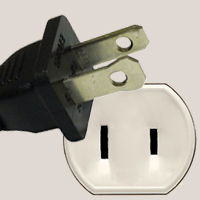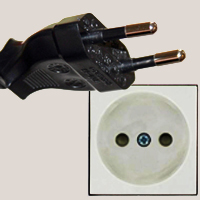Latin America Regulatory Compliance Group
Type Approvals for Latin America and the Caribbean
Latin America Regulatory Compliance GroupLARCG COVERS BOLIVIA
LARCG COVERS LATAM
ATT Type Approval in Bolivia
ATT (Autoridad de Regulación y Fiscalización de Telecomunicaciones y Transportes) is the telecommunications regulatory body in Bolivia. Every radio frequency device needs ATT type approval unless there is a frequency exception for the device’s operational frequencies.
Bolivia generally does not require in-country product testing. Local representation and specific labeling are also not required. We can usually use existing international test reports for the homologation process to obtain a certificate of conformity. Acceptable international testing reports include CE and FCC test reports.
Technical documents will be reviewed and validated in the certification process. Modular, Family, and System approval may be possible depending on the characteristics of the equipment.
Products requiring ATT type approval include:
- Modems
- Wireless telephones
- Transceiver terminals
- Equipment for television broadcasting
- Equipment for sound broadcasting
- Equipment for Earth station
- Power amplifiers for radio frequency
- Transceivers and transmitters
- Switching stations
- Equipment for data networks
- Multiplexers
- Optical line terminal equipment
In Bolivia, the certificate is valid for 5 years.
For products that do not require ATT type approval, the Agency will provide a ‘No Homologation’ letter to have for your records so as to avoid any issues with Customs upon importation of the equipment to Bolivia.
Contact us to start the approval processBolivia Plug Types


Type A plugs, rated at 15 Amps, are used mainly in the United States, Canada, Mexico, South America and Central America. This is a Class I, non-grounded, non-insulated plug that operates on AC current and is known as NEMA 1-15. The plug has two 1.5 mm thick blades which measure 15.9 – 18.3 mm in length and are spaced 12.7 mm apart. The neutral blade is 7.9 mm wide, while the hot blade is 6.3 mm wide.
This plug almost always operates between 100 – 127 volts and is only compatible with socket type A.
Type C plugs are most commonly used in South America, Asia, and Europe (except the United Kingdom, Ireland, Cyprus and Malta), and are rated at 2.5 Amps. They operate on AC current at 220 – 240 Volts. Probably the most widely used international plug, CEE 7/16 or Europlug, features two 4 mm round pins measuring 19 mm in length, which are spaced 17.5 mm apart at the tip and 18.6 mm apart from the center point of each pin’s base. 10 mm long insulated sleeves slightly cover the base of the pins; however, they are relatively flexible which allows the plug to mate with any socket that accepts 4.0 – 4.8 mm round contacts on 17.5 – 19 mm centers. As a class II plug, the Europlug is generally limited to applications that require 2.5 amps or less. Note: whereas type C plugs are very commonly used, this is not the case for type C sockets, as these sockets are older and not grounded.
Most counties now require grounded sockets to be installed in new buildings; and as such, type C sockets have become illegal almost everywhere — they are being replaced by type E, F, J, K or N. To be clear, only the sockets have become illegal; the plugs remain in use.